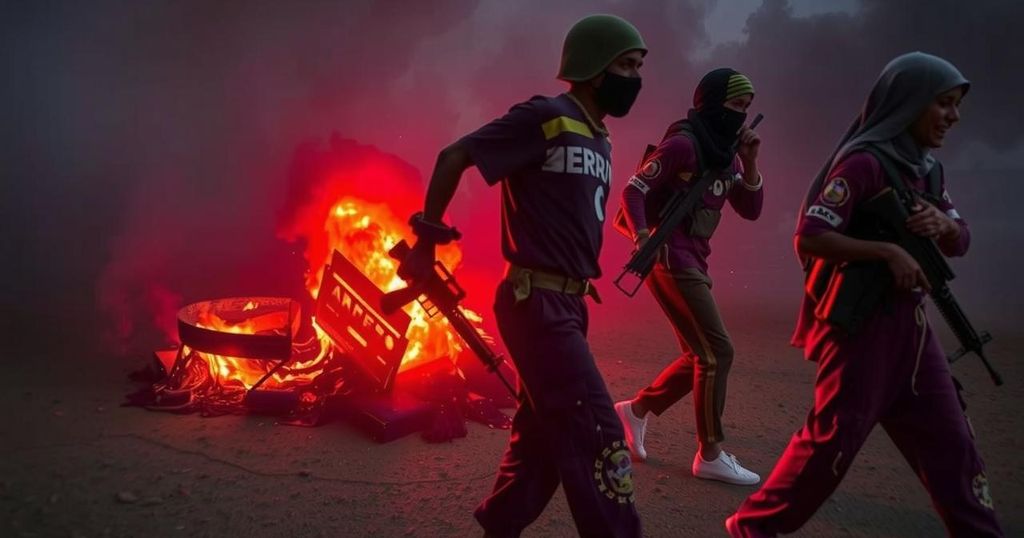39 Lives Lost in Jihadist Attacks in Western Niger: A Focus on Escalating Violence

Recent attacks in western Niger, near Burkina Faso border, resulted in 39 fatalities, highlighting ongoing jihadist violence. The Nigerien defense ministry confirmed 21 deaths in Libiri and 18 in Kokorou. Despite military operations, insecurity persists, displacing thousands and raising urgent humanitarian concerns.
On December 12 to 14, a total of thirty-nine individuals, including children, tragically lost their lives in two brutal attacks in the Libiri and Kokorou regions of western Niger, near the Burkina Faso border. The Nigerien defense ministry reported that the attacks specifically resulted in the deaths of 21 people in Libiri and 18 in Kokorou, marking a continuing cycle of violence in this troubled area. These heinous assaults targeted defenseless civilians and were attributed to criminals challenged by relentless military operations, as stated by the ministry.
The Tera region, characterized by its precarious borders with Niger, Mali, and Burkina Faso, has long been a zone of intense jihadist activity. Groups affiliated with the Islamic State and Al-Qaeda have turned these borderlands into a battleground, perpetuating an ongoing insurgency that has culminated in widespread unrest. Prior incidents, such as an attack on a goods convoy resulting in 21 civilian deaths on December 7, illustrate the escalating violence that plagues this region, culminating in a significant attack in Chatoumane that allegedly left over 90 soldiers and 40 civilians dead, although Niger’s military junta dismissed these claims as unfounded.
In response to increasing violence, the Nigerien government has called for heightened security measures and international assistance to counter the growing threats posed by such militant activity. However, despite continuous military operations, the country struggles with the repercussions of ongoing jihadist violence, with tens of thousands of civilians displaced and vulnerable in a volatile environment. Additionally, humanitarian concerns intensify as instability and violence further exacerbate the plight of affected populations.
The recent attacks underscore a grim reality in Niger, particularly in the Tera region, where jihadist elements have thrived amidst porous borders and challenging terrain. This area serves as a battleground for groups associated with prominent global terrorist organizations, transforming it into a hotspot for violent acts that disproportionately affect civilian populations. As Niger grapples with its security challenges, the response of the military junta, including the suspension of foreign media outlets, raises questions about transparency and the true scale of the violence.
In summary, the recent attacks in western Niger have led to the tragic loss of 39 lives and highlight the ongoing violence perpetuated by jihadist groups operating in the region. The Nigerien government’s struggle against these insurgents reflects broader challenges in ensuring civilian safety and addressing humanitarian needs amidst rising instability. Continuous military efforts appear insufficient to quell the unrest, and international support remains crucial for stabilizing the region.
Original Source: dailypost.ng








